Becoming a detective is a dream for those who grow up watching detective and serial movies. After knowing the character of Sherlock Holmes, we assume to be like him. However, somewhere along the way, we forget this dream of ours and work towards more “realistic” goals. Crime rate continue to increase that is why the need for detectives to solve them rises. This is the reason why some police officers are trying to be like Sherlock Holmes. If becoming a detective someday is a burning desire of yours, the information listed below is a great help.
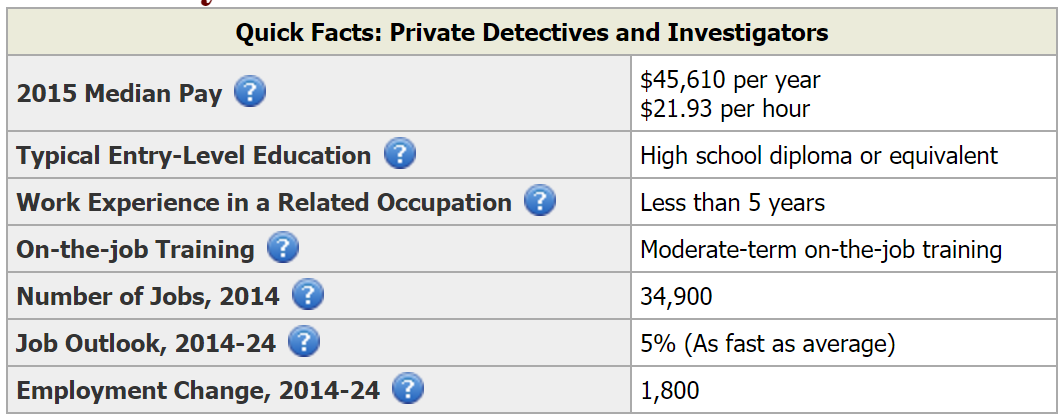

Table Of Contents
- Average Detective Salary
- Detective Career Outlook
- How To Become A Detective
- Detective Job Description
Salary of a Detective
The employer is the one who will decide regarding the detective’s salary. Usually, a state employed investigator has higher earnings compared to a private one. This is because a private detective has intermittent work while the state employed has a steady work. The national average that is earned by a detective who is employed by the state is $76,000. For a private detective, he or she can earn about $45,000. The factors that affect a PI’s salary will be discussed later. For now, let us look at the factors that affect the salary of state employed investigators.
[asd_program_button /]Population Size
Just like police officers, the income of a detective is dependent on the city’s population. A more populated city will mean more cases to be handled. Therefore, the salary increases as well. Similarly, crime rate also plays a major factor in deciding the salary of an investigator. For example, the average salary for someone in the LA police department ranges from $44,000 to $88,000. Compared to someone in Miami Police department, the average salary ranges from $86,000 to $107,000.
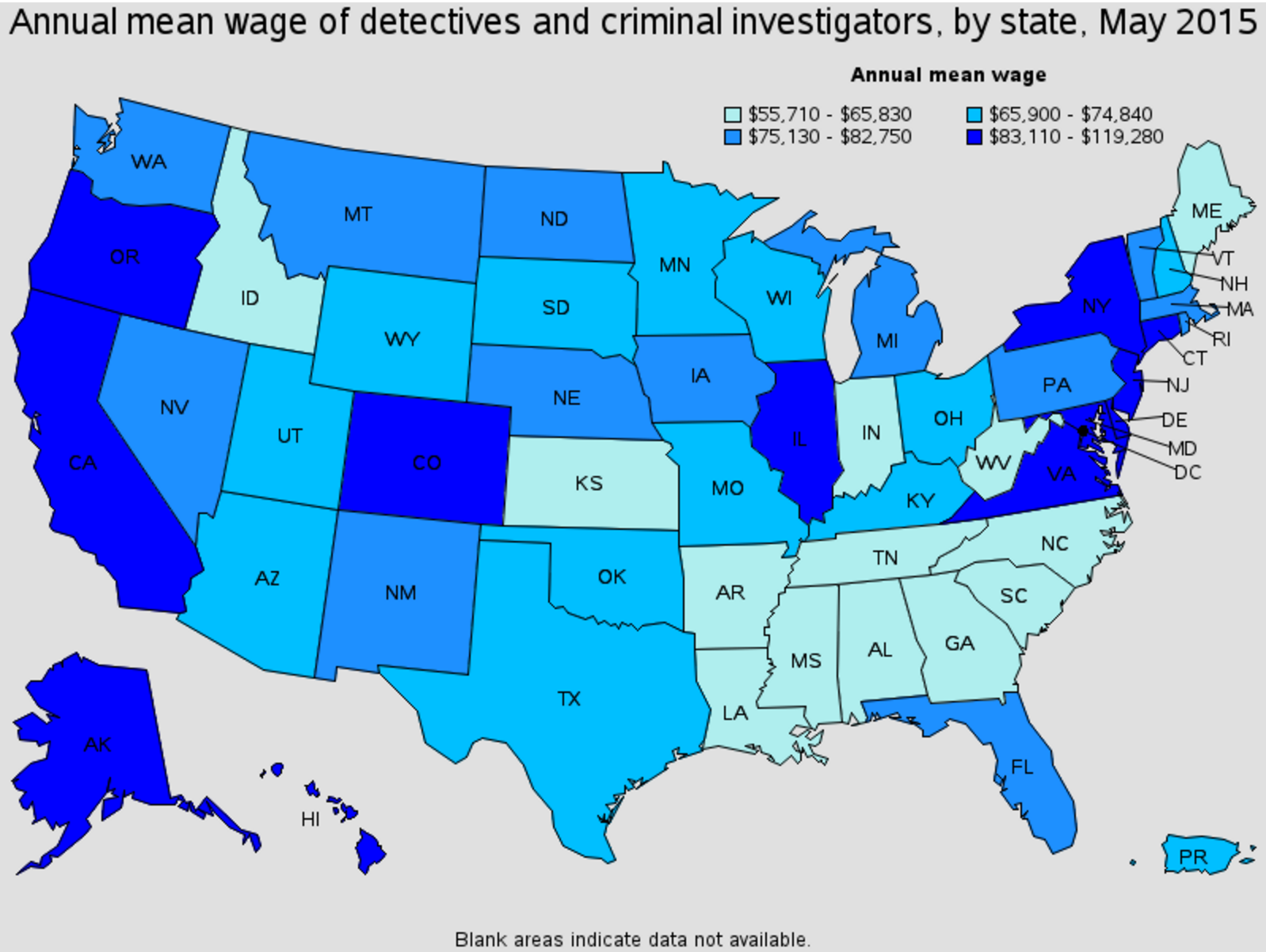
Job location
The location is just the same us with the population of the place and rate of the crime. But there is another factor, which is the cost of living. Higher the cost of living in a certain location, higher the detective is paid. This is true with the case of private investigators as well. District of Columbia, Alaska, and New Jersey all pay 6-figure salaries with District of Columbia paying as much as $116,000.
Education background
A high school degree is sufficient for those who want any police job except for the federal level. Though this rules sometimes varies with state, most states do not require higher education certificates. However, officers and detectives are paid more if they have a degree after high school as there are states and departments who consider higher education important. This can be an associate, bachelor or a master’s degree. Your degree will affect your salary.
Number of years in the field
You will be paid as an investigator if you will be working in the field for a long period of time. For those who are working in the field for 20 years already even if they are not promoted will get up to $15,000 increase. You can earn about $180,000 annually if you reach the post of Police Chief as a promotion.
Skippack Private Investigators
The salary of a private investigator depends on the how many cases he or she takes and solves them. As mentioned before, the location can affect the price along with the many other factors such as the amount of discretion needed, the amount of danger involved, extra equipment required and many other things. The investigator will quote the job price after the clients presented their problem.
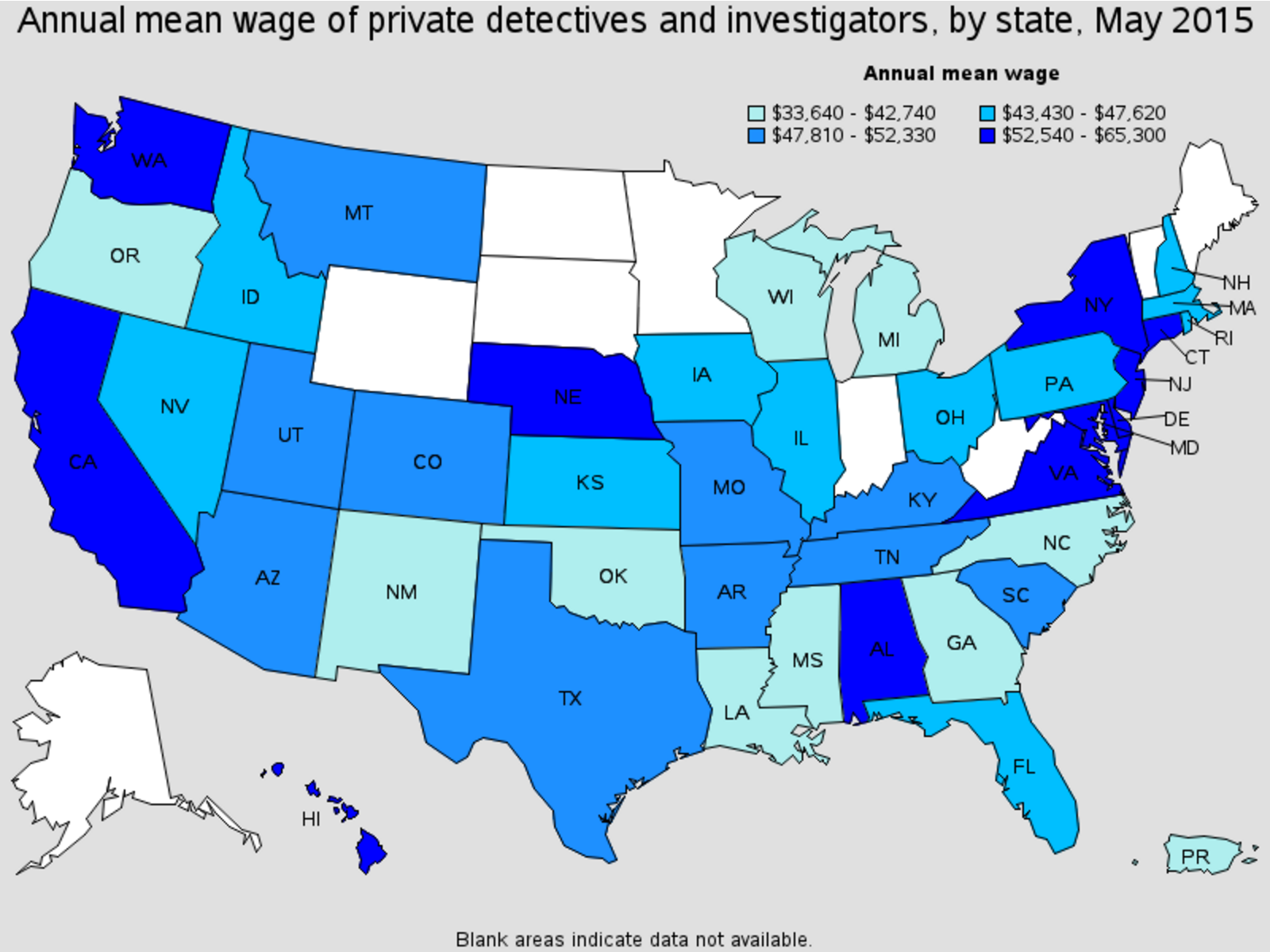
As you can see, the income of a state-employed detective is steady and can be increased by various means. On the hand, the salary of a private investigator is quite unpredictable and can only be increased by fame (or rather being more discrete). The path to choose will be determined based in the financial facts you have.
Career Outlook of a Skippack Detective
First thing first, we will be talking about career growth in this field. In 2015, the recorded public detectives or criminals investigators are about 106,000. On the other hand, there were only about 30,000 private investigators holding a job at the same time. Private detectives have grown for about 5% in the industry. This means that there will be about 1,500 new jobs open by 2025. This is the same growth rate of 5% in different sectors. On the other hand, for public investigators, this figure is at 4%. This goes to show that 4,000 more jobs as a criminal investigator is expected in 2025. This is also considered as the average growth rate.
[asd_program_button /]The steady increase in employment is mainly due to the increase in population. Protection should be done to a lot of people and more criminals should be caught as the population increases. But due to the strict implementation of laws and technology are more advanced, the crime rate is not increasing that much. Because of this, both the phenomena are just the same leading to average growth in each career.
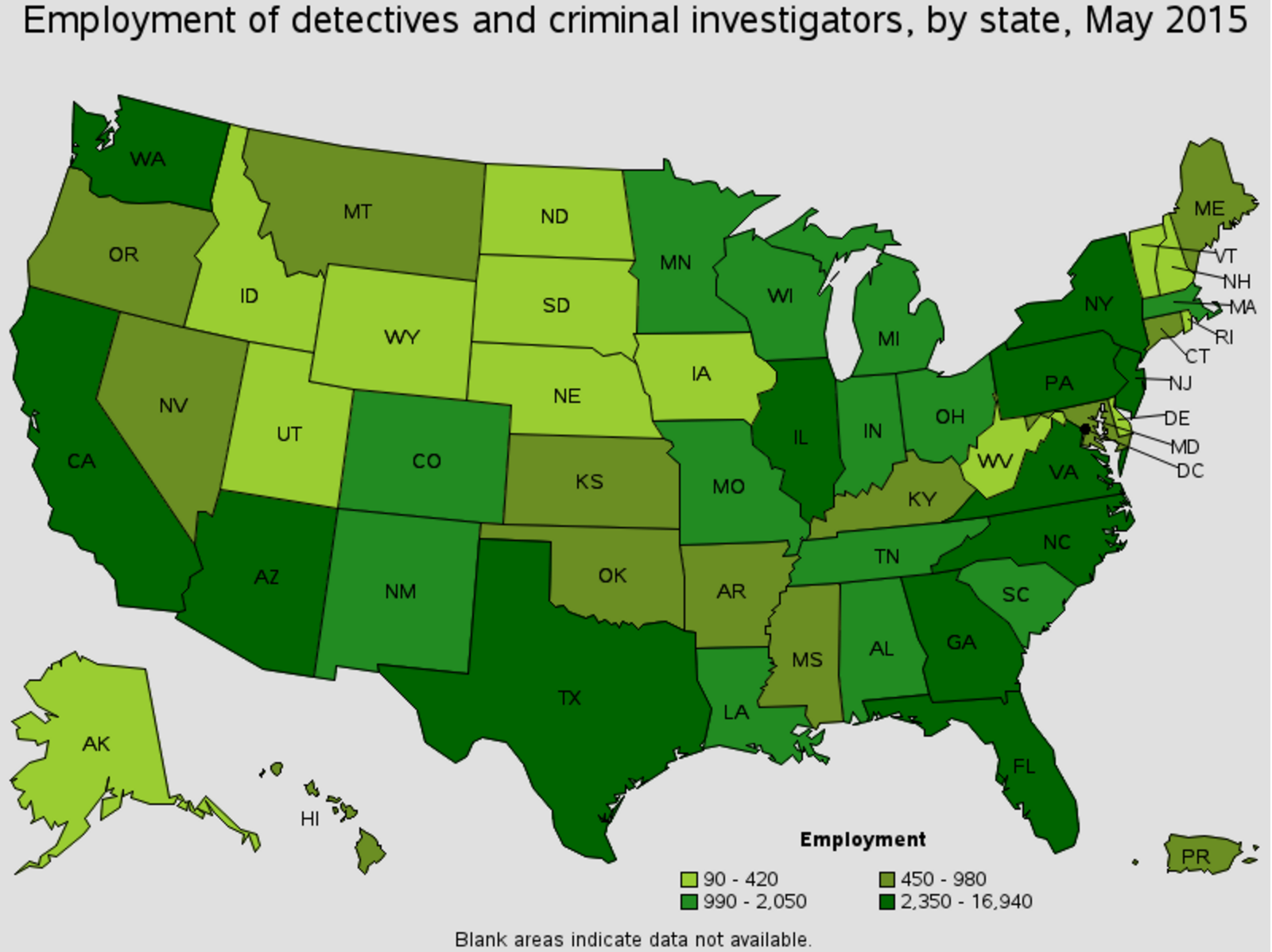
The highest number of Criminal/Law Enforcement Investigators are found in Texas, California and New York. Western states and Texas show more employment here than the eastern ones. Private detectives are prominent in California, Texas and Florida with the southern states tending to employ more compared to the northern ones.
Let’s now find out where these two professionals are hired most by industires. As clear as day, The Local, State government and the Federal branch employ the most number of criminal investigators. On the other hand, private detectives are usually hired by Security Services, Consulting services and occasionally by the local government for consultation on a few cases.
When it comes to finance, criminal investigators are paid more compared to the private ones. Their annual average salary is $80,000 (Criminal investigators) and that of Private investigators is around $52,000. When combining the aspects of geography and finance, the District of Columbia, Alaska, and New Jersey is paying most the Public investigators. It is in Alabama, Nebraska, and New Jersey were private detectives are paid most.
Private industries that employ most do not pay the highest in comparison with the different industires. Private detectives are paid most in Electromedical, Navigational, Power generation, Metal Product forming and other such industries because of the most sensitive information that needs to be protected. Moving on to Public Investigators, federal agencies, postal services, and educational institutes pay the most.
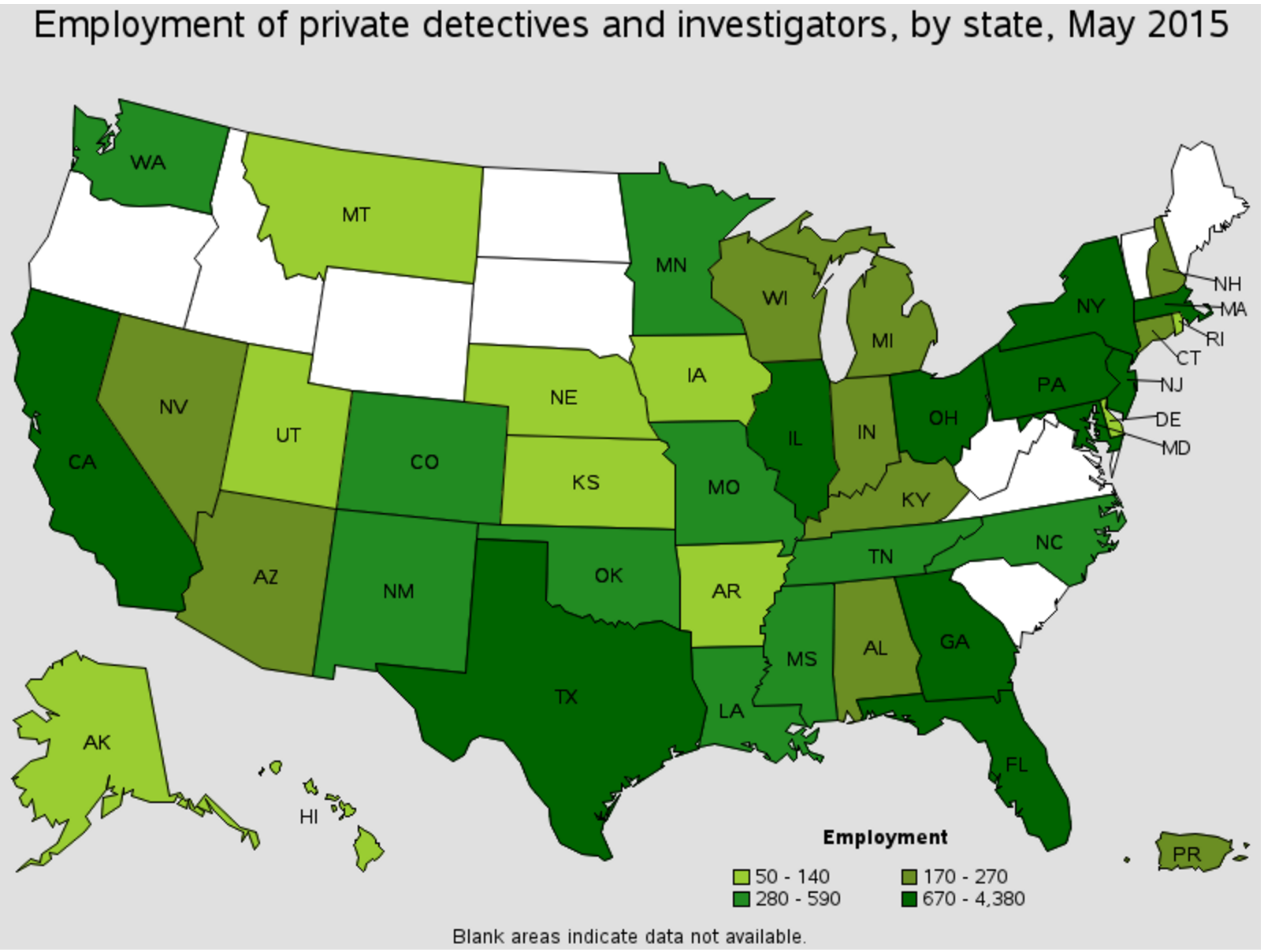
Qualifications to Become a Skippack Detective
Detectives come in two kinds. Some of them are private investigators who can be hired by the general public to investigate on certain things. The others are employed by the government and reach this post after being promoted from a police officer. Here we shall explore both the avenues.
[asd_program_button /]Finish your High School Studies
Due to excellent deduction skills, a deductive is able to take a leap from a police officer to a detective position. Hence if you want to become a detective, it is generally necessary to graduate from high school and enlist in the police force. To become a private investigator, a high school degree is a must too.
Get your Bachelor’s Degree
In most cases, enlisting in the police force won’t require a bachelor’s degree. Some officers however want to have another source of income right after they retire from their job. Likewise, you will need a bachelor degree if you want to become a detective.
Many institutions require applicants to have a bachelor’s degree in law, criminal justice or psychology to become a detective. Anyone with an associate’s degree is given training up to 5000 hours. However, the time required is reduced to 4000 hours if you have a bachelor’s degree.
Get enough experience
Professional experience as an investigator is required in order to become a professional detective. There are many ways to get this. But in most cases, it will require you to be employed by the government. If you have any experience as an arson investigator, criminal investigator or a law enforcement investigator, you are qualified as a person with experience. Working as an office investigator or as a licensed repossessor will count as well.
The experience required might vary from one state to another. Some states require you to have 3 years of experience while others require 5 years.
Get firearms permits
If an investigator doesn’t have a firearms permit, he won’t be allowed to carry his firearm. Some firearms will need you to undertake a full training course in order to get your permit. Hence, to get a permit for your firearm when working as an investigator, you will need to complete the full training course.
Complete a Pennsylvania licensure exam
After completing all the education and experience requirements, you are required to undergo a state licensing test. This test usually contains some multiple choice questions about state laws and some procedures that often need to be carried out. The test is only available for those who want to be private detectives. After passing this test, you are officially a private investigator with a license.
Insure Yourself
Since investigating can sometimes be a dangerous line of work, it is important to get insurance done. Basically, this is a medical insurance worth $10,000. However, it is important to also get a higher amount if you carry a firearm since you need to protect yourself from greater dangers and insure the gun itself.
Simply follow through all steps and you’ll have nothing to worry about. Your steps towards becoming a successful detective is finally within your reach. However, don’t forget that being a detective would mean exposing yourself to danger. If that doesn’t scare you away, then you should fulfill all the requirements as soon as possible.
What Does A Detective Do In Skippack?
Crime Scene Investigation
It will be a detective’s duty to carefully assess a crime scene and come up with the most sensible deduction. The detectives find and bag evidence at the scene of the crime. They will need to keep anything suspicious that might lead to solving the case. To help them deduce a lot of things more quickly and easily, the forensic department will sometimes offer them assistance. Detectives should gather as many clues and evidences as possible by analyzing cameras and gathering information from eye witnesses.
[asd_program_button /]Criminal Research
One of the core aspects of a detective’s duty is doing research and groundwork regarding previous cases. This is so that they can have an insight regarding criminal patterns and behaviors. In most cases, this will mean researching into previous records for them to know how the culprit might operate. Research is definitely of great help when it comes to tracking down serial killers. It also helps to identify tactics that a drug cartel might be using thus helping the detectives shut them down. Research also helps detectives make deductions more efficiently.
Narrowing down suspects
A detective’s main objective is to take the one at fault to justice. But to do this, they first need to a list of possible suspects. In some cases, it could include over a hundred people, but there are also cases where there is none. They create this suspect list by drawing conclusions from the evidence gathered at the crime, eyewitnesses, research and a bit of criminal/forensic psychology. By means of getting statements from suspects, detectives are able to narrow down their list. After they narrow it down as much as possible, they collect hard evidence or get the suspect to confess to the crimes.
Testifying In Court
One of the final jobs of a detective on a case is to ensure that justice is served. To hasten the process, the court will sometimes summon them. In some cases, they will describe the evidence and how they are connected to the suspect, as well as narrating the possible crime scene. Sometimes, the detectives are also required to escort the culprit to jail.
Skippack Private Detectives
Basically, the above mentioned roles are the responsibilities that detectives carry. Keep in mind that the job of a private detective isn’t as easy as it seems. They will need to fulfill the needs of their clients especially when it comes to research. However, they are allowed to only bend certain laws to a minimalistic extent to help them complete their duties. A private detective is usually hired to perform background checks, keep a check on the actions of certain people, track finances, collect evidence against someone or work of similar nature. They should never act in a way that they can be easily recognized as a detective in public. Detectives are also prohibited from arresting an individual.
managed to get a most things right. However, the roles and responsibilities that detectives carry aren’t as easy as they seem. That is never shown properly on television or anywhere else. They are always supposed to look over their shoulder and ensure they do not miss any single clue since lives literally depend on them. If the job still has you intrigued, then find out how long it takes to become a detective now!
